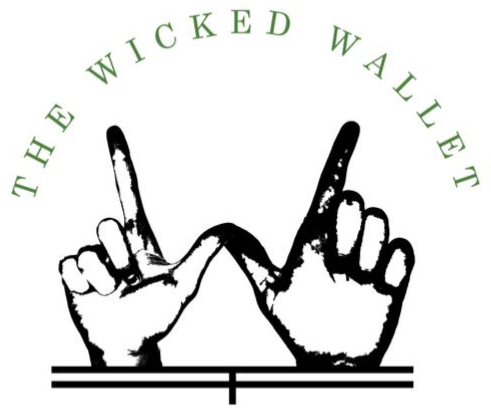Thinking about your own death is a morbid thought but it must be done to be financially responsible. After all, you don’t want to leave your family not only grieving their loss but also in a financial pickle. In this article, we will walk through the basics of estate planning and all the documents/terms that go along with it. The intention of this article is to help you feel more comfortable with the topic and motivate you to finalize your own estate plan.
What is An Estate Plan?
Well, it may help to first define estate. An estate contains all the assets that make up a person’s net worth, this includes royalties, real estate, etc. minus said person’s liabilities. Think of your estate as your net worth.
Then an estate plan is when you outline, in advance of death, what you would like to do with all of your assets when you do pass away.
The reason why having an estate plan is so important is because if you do not have one and you pass away, then you die intestate. Intestate means dying without a will. What happens to your assets then depends on the state that you resided in upon passing. The intestate succession laws from state to state vary, but this completely governs how shares of your assets are divided. It is also useful to know that if you own property in a different state than where you resided, it is up to the state that the property is in to decide how that gets distributed.
Another important reason to have a rock solid estate plan is to avoid the probate process all-together. Probate is different in each state, but the general idea is that it is the process that is mandated by the state and occurs once you pass away. It includes:
- Validating your last will and testament
- Appointing the executor
- Determining the value of your assets (date of death is used as determinant)
- Paying all bills/taxes
- Dividing up the assets
Probate can be a lengthy process. Not to mention that it’s costing the estate money, so the longer it takes the more expensive it is. If a will is contested (a lawsuit against the will to prove it is invalid), then the process can become even longer and more costly.
There are ways to avoid the probate process, which can save your family from the messy and expensive parts. These include:
- Designating beneficiaries to all accounts where possible (401k, bank accounts, pensions, IRA, etc.)
- Holding assets jointly with rights of survivorship
- Moving assets into a trust
Will
Think of a will as the instructions you leave behind for your assets. Having just a will in place is not going to bypass the probate process however it is definitely a good idea to have one regardless. This helps your family incase something gets stuck in probate. It’s also where you can leave any final wishes and will likely be the last form of communication you have with your loved ones.
There are different kinds of wills, but a written will completed in advance of your death is your best bet at making sure your assets are handled properly after you pass.
If you would like to discourage people from contesting your will, you can speak to a lawyer as there are provisions you can add in that state something along the lines of the beneficiary forgetting rights to assets if will is contested.
BONUS: A will can actually start a trust for you upon your death. We touch more on this below.
Trusts
There are many different kinds of trusts. The one that is best for you completely depends upon your specific situation. It is important to know that trusts are extremely powerful when it comes to avoiding the probate process.
The general idea of a trust is that it is a legal document that can hold assets. Once assets are transferred into a trust, the trust now owns those assets. When the trust is created, a specific set of rules are created with it that guide how the trust is maintained, who the beneficiaries are and how all assets are handled.
Below we will review some of the most common types of trusts.
Revocable Trust (Living Trust):
Revocable trusts, also referred to as living trusts, are made during the lifetime of the trust-maker. These kinds of trusts are referred to as revocable because they are just that, removable. This means that you can alter and modify them once they are created.
The initial trustee is the person who is transferring assets into/out of this trust, the trust-maker. The trustee can then change to whomever the trust-maker wishes. This trustee is who will be responsible for making sure the instructions of the trust are followed.
The beneficiaries of the trust are those who are benefiting from trust. Whether this means having assets distributed to them directly or to other vehicles for them, they are positively affected.
It is important to know that although this trust can help avoid probate, this trust is still susceptible to creditors of the trust-maker. A way to avoid this is to state in your will that upon death you would like your revocable trust to become irrevocable, this is called a testamentary trust (told ya we would talk about this 😁). This way the trust-maker’s creditors cannot go to court to access anything within the trust.
Irrevocable Trust
An irrevocable trust cannot be changed once it is created. If any property is transferred into an irrevocable trust, no one can take that asset out of the trust including the trust-maker (also known as the Grantor). The only person(s) that can access what is in the trust is the Grantor’s listed beneficiary. The Grantor essentially gave up all rights to those assets upon creating the trust.
The benefit of an irrevocable trust is that since the Grantor is giving up ownership of assets, those assets are no longer in their estate and therefore cannot be taxed.
Irrevocable trusts cannot be taken to court and are also off-limits to creditors. They are more complex than revocable trusts due to the potential of future estate tax and also current tax. It’s really important to talk to your lawyer about which type of irrevocable trust may be right for you.
There are many different kinds of irrevocable trusts, some of the most common include:
- Irrevocable Life Insurance Trust (ILIT)
- Grantor Retained Annuity Trust (GRAT)
- Spousal Lifetime Access Trust (SLAT)
- Charitable Remainder Trust
Irrevocable trusts are great tools in your estate plan to really help your estate avoid taxation and probate.
Power of Attorney
This is a legal document that states who you would like to act on your behalf. Depending on what type of Power of Attorney (PoA) you decide on, this delegate can have limited authority or full authority to act on your behalf. You can have a PoA for your assets, your finances and even your medical issues.
It is very important to know that a regular PoA does not stay valid once you pass away however a Durable Power of Attorney is still valid upon death.
A general power of attorney can act on your behalf in all matters allowed by the state you reside in. A limited power of attorney only allows the delegate to act on your behalf in specific situations and you can also limit the specific period of time they are allowed to act on your behalf.
As stated above, the durable power of attorney can still act on your behalf postmortem. However, the durable power of attorney cannot make final decisions on your health.
This is where a healthcare power of attorney comes into play. Also referred to as your health care proxy, this is the person who you are allowing to make medical decisions for you if you are not in the state to make them yourself.
You can also add a provision for digital assets into your PoA or even a trust that lists out all digital assets and passwords. This is incredibly useful if you are paying any bills online or have online access to assets. This allows the PoA to access these and either pay them in full, stop payments or retrieve the asset. Even by listing out all of your online accounts will help your executor when the time comes.
Although it may be obvious, I feel it is important to state that you should only appoint a Power of Attorney that you truly trust. Family and close friends are often the choice. Attorneys can also act as your power of attorney.
Beneficiary Designations
A beneficiary designation is when you are choosing to leave a specified asset (and even specified amount) to one or more beneficiaries upon your death. These are incredibly important when trying to avoid the process of probate. In every situation possible, leave your asset to a beneficiary.
You can leave your assets to multiple beneficiaries and even decide how much (percentage wise) you would like to leave to each.
There are two types of beneficiary designations you are likely to see:
- Per Stirpes: This means that if you chose a beneficiary on an account but at your time of passing, that beneficiary has also died, then that portion of the asset then goes to the said beneficiary’s heirs.
- Per Capita: This means the surviving generation of beneficiaries split up the asset equally.
Per Stirpes Example: If Jared has four kids and he lists them all out as his beneficiaries for his Roth IRA but Jared and one of his kids (Jared Jr.) died in a car accident, then the Roth IRA is still split up into four, however the portion that was supposed to go to Jared Jr. now goes to his heirs.
Per Capita Example: If Jared has four kids and he lists them all out as his beneficiaries for his Roth IRA but Jared and one of his kids (Jared Jr.) died in a car accident, then the other three kids would split the Roth IRA up equally.
Guardianship Designations
For parents who have minor children, you will definitely want to appoint a guardian. This should be done in a separate document and you should make sure to inform the guardian that you chose them incase of your sudden death.
Letter of Intent
This is to be left to your will’s executor or beneficiaries. This letter does not hold real legal value however it does explain how you would like your assets to be handled once you are gone. This is also where you can outline how you would like your funeral to be held, etc.
List of Important Documents & Codes
This is another document that does not hold legal value however it can be incredibly helpful to your estate’s executor. Here you will want to list out any and all account numbers and passwords, safe codes, where all of your own important documents are and anything else that no one else may know of but you.
Miscellaneous
There are obviously tons of other factors that go into estate planning, especially if you are trying to avoid huge estate taxes, have sufficient life insurance and leave your family a non-messy situation. This article unfortunately cannot cover all of them but it does make use of the basics to help get you started.
If hiring a lawyer to draft all of these is far too costly for you, that is fine. You have the option of downloading all of these forms online and then hiring a lawyer to review them. This is very important as you don’t want to just DIY your estate plan and leave your family a huge messy situation.
Final Thoughts
Estate planning is vital for your own financial health. It is never too early to start but unfortunately it can be too late. Don’t let this be one of the things you procrastinate on. You never know what may happen, but at least setting up a sound estate plan can help give your mind the solace that when you leave your family won’t have to sort out a mess while also grieving.
Disclosure: I am not an attorney. Contact your attorney for your estate planning needs and questions. This article is merely meant for informational purposes only and not for the purpose of providing legal advice.
For more wicked reads, check out these articles:



